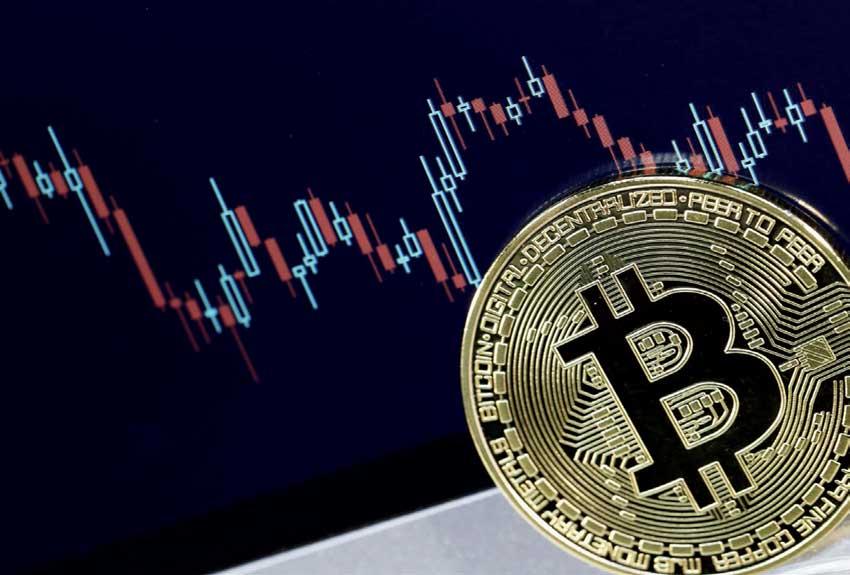26 May 2021 - {{hitsCtrl.values.hits}}

 It’s as good a time as any to discuss cryptocurrencies and blockchain technology. The reason being that we seem to be in a truly transitional period of time. To anyone paying attention, it might appear evident that the traditional economic structures we’ve grown to place unrelenting faith in are beginning to shake at foundational levels.
It’s as good a time as any to discuss cryptocurrencies and blockchain technology. The reason being that we seem to be in a truly transitional period of time. To anyone paying attention, it might appear evident that the traditional economic structures we’ve grown to place unrelenting faith in are beginning to shake at foundational levels.
That last sentence is a heavy one. To put this out there early, the Sri Lankan Central Bank doesn’t believe cryptocurrency is a reliable asset class, owed to its high volatility and overall unregulated nature. However, with crypto in full swing of the trend in recent weeks, there is no debating that the domain is at the very least an intriguing one.
Here’s a good place to start the discussion. What is the role of cryptocurrency in the promised coming of the decentralised economic revolution. The way I like to think about it, in the simplest of possible ways is that cryptocurrency and bitcoin are an asset class and asset, respectively. As with any other class of assets we are familiar with, like gold, plots of land or even money itself, bitcoin and interchangeably cryptocurrency maintains a few fundamental features.
Ongoing price discovery
The idea that buying pressure and selling pressure (demand and supply) converge at a point of market equilibrium on an ongoing basis (hourly, daily, weekly, etc.) to determine the price of a particular asset.
Liquidity
Ability to convert a particular asset (such as gold) into another readily accepted asset (such as US dollar) with little to no resistance, frequently in many marketplaces.
Utility/productivity
The idea that an asset inherently possesses some potential productive value, in the way that a plot of land has the potential to be cultivated and thereby yield crop.
Scarcity
The idea that an asset has a somewhat limited supply and/or a cost of production, in the way that gold and oil must be mined and requires human effort for which there is a definite cost.
Depending on who you ask, cryptocurrencies will be explained differently. The reason for this is that there are three primary layers in any cryptocurrency that largely influences its value. The way I like to think of it is, there is a technology layer, a utility layer and a speculative layer.
The technology is the underlying blockchain technology, which adds capabilities to cryptocurrency (ability to facilitate smart contracts for example), the utility layer is the real-world use case for the cryptocurrency (bitcoin for anonymous payments for example) and speculation is the marketing hype created around a crypto (Elon Musk and Dogecoin is a great example).
If I haven’t lost you up till now, that’s mostly because I’ve chosen to explain this backwards when comparing with most other explanations you’ll come across. To put it plainly, what I’ve described above are the few similarities that cryptocurrency shares with more traditional asset classes like fiat currencies, gold and land.
For most crypto purists, this order of explanation is potentially sacrilegious. This is because the crypto community makes every effort to highlight the differences between cryptocurrency and fiat currencies right up front. However, discussing the fundamental differences between traditional and digital currencies is inevitable and we should get to it.
“Bitcoin is the currency of resistance,” said Max Keiser.
Cryptocurrency at the level of concept, exposes what crypto enthusiasts believe is everything wrong with the way wealth, value and currency are controlled centrally by governments, reserves, exchanges, central banks and other large institutions. I’m inclined to avoid elaborating on this explanation for the need to keep this concise. But if you’re intrigued, there are comprehensive explanations that can be freely read up on the Internet.
Instead, the way I prefer thinking about it is in the sense that cryptocurrency, essentially is the financial equivalent of downloading a movie from a torrent. Instead of relying on centralised institutions such as movie theatres, Netflix or HBO, torrents let you watch movies by connecting on a peer-to-peer (P2P) basis with others who are for the most part anonymous to you and you to them. This is certainly not a perfect analogy but considering that Bit Torrent has a cryptocurrency (BTT) in the market; I’m satisfied with the accuracy of the analogy.
Naturally, the next question is why any of this really matters to anyone, much less, to you (or me). Well, it’s a big question to answer. I can tell you that blockchain technology and its use is unlikely to be confined to digital currency. It won’t be long before we see this technology being applied in logistics, education, healthcare and even governance. In a lot of ways, the adoption of blockchain technology and ideas of decentralisation are hailed by many to be the biggest paradigm shift in technology since the advent of the Internet.
I can also tell you that decentralised financial systems are very likely to cause transformational changes in the way we manage our own finances, in the way we bank and frankly in the value of our currency and other asset classes that we tend to make our investments in.
But, simply put, I can tell you that Dogecoin, which is a bit of an inside joke in the crypto world, soared 11,854 percent year-on-year in value. If you want me to paint you a picture, a Rs.100,000 investment in Dogecoin sometime last year would have earned you no less than Rs.11,854,000 this year, at the coin’s highest trade value.
How’s that for interesting?
If I get the time, I plan on continuing to write what I think I know on crypto. Watch this space for any future posts, if reading long pieces works for you. If you’re interested, there are many other places on the Internet that can offer you information. I hope you do read up on it.
The way I see it is, the domain of cryptocurrency offers immense opportunity to make sense of the world around you and to get a head-start on the future.
(Dilshan Senaratne (MBA), Head of Marketing (Sri Lanka) and Communication (Asia Pacific, Europe and the Middle East) for a global technology blue chip and founder and former CEO of Cyaniq Global LLC, can be reached via [email protected])
23 Dec 2024 2 hours ago
23 Dec 2024 3 hours ago
23 Dec 2024 6 hours ago
23 Dec 2024 8 hours ago